“It’s impossible to overstate the value of getting your data right. With Informatica, our teams make well-informed decisions the first time around, which means better results for consumers, faster.”
Automate data discovery, curation and lineage
Find data across cloud and on-premises
Efficiently locate data assets and identify their content, structure and relationships for a complete view of data.
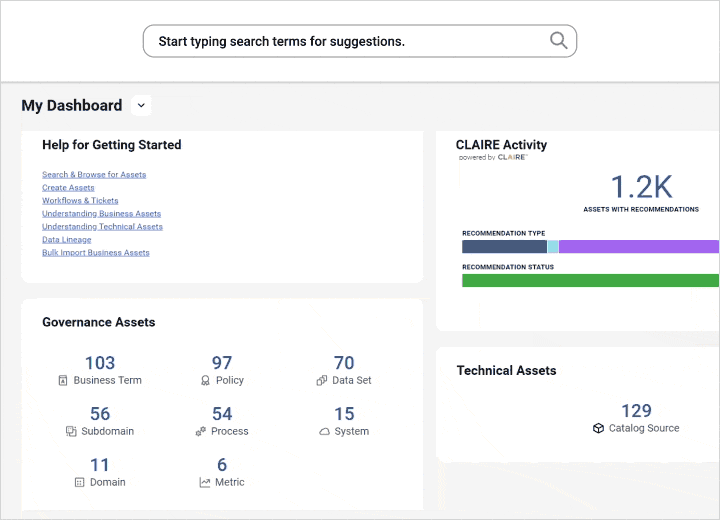
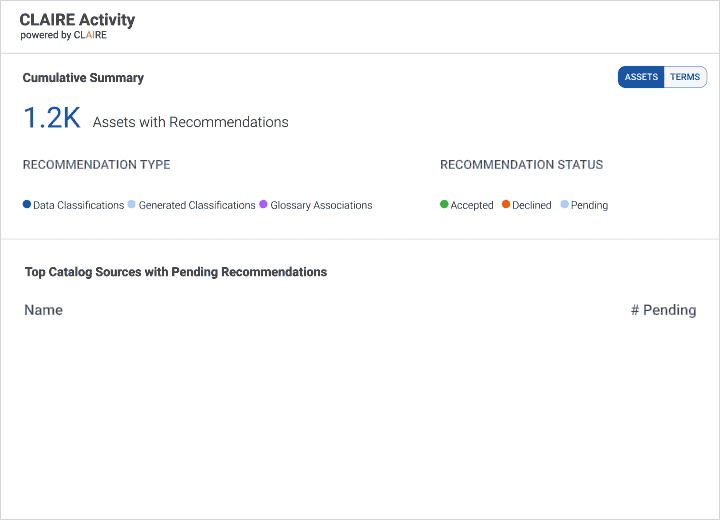
Enrich data with AI-powered curation
Add relevant context to data assets through automated classification, association and recommendations.
Understand relationships with data lineage
Explore asset relationships and analyze impact with automated, end-to-end data lineage.
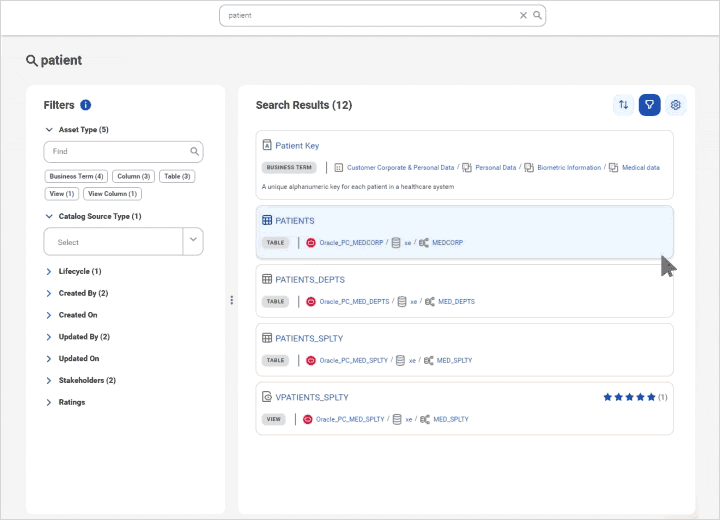
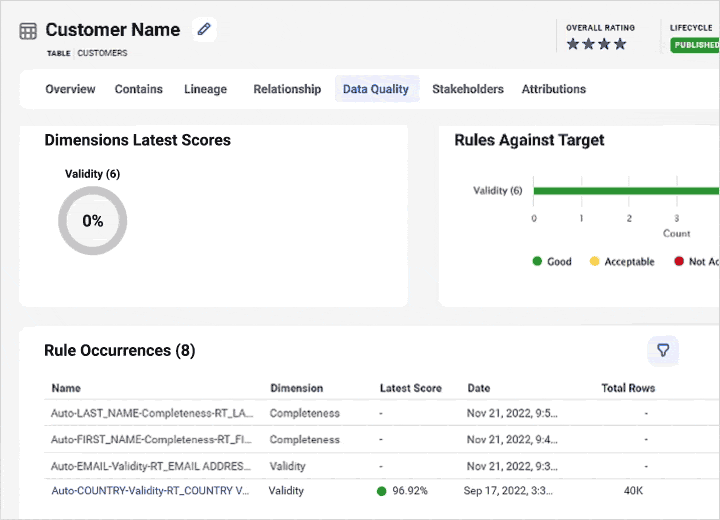
Assess and monitor data quality
Automatically profile data, apply rules, identify issues and measure data quality via metrics and scorecards.
Collaborate and harness tribal knowledge
Share insights and enhance metadata with certifications, ratings, reviews, Q&A, workflows and notifications.
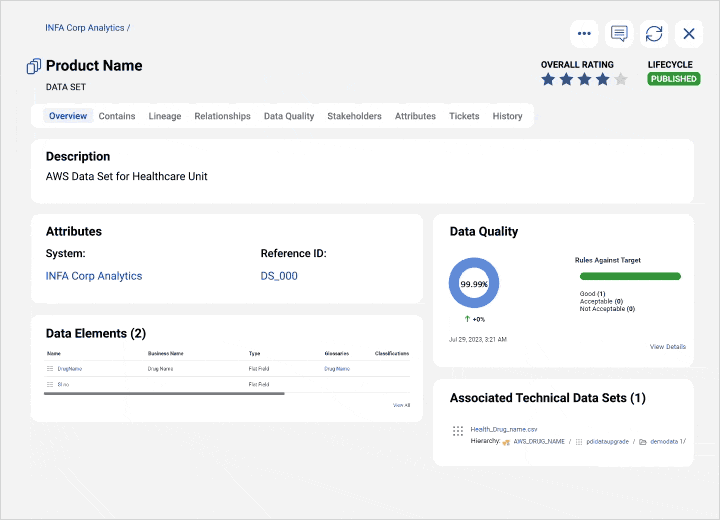
Pay only for what you use with our flexible pricing.
Explore related Data Catalog services
As a leading part of the AI-powered Informatica Intelligent Data Management Cloud (IDMC), Data Catalog works with a range of complementary services.
Key Data Catalog resources
Meet the Experts: What’s New in Cloud Data Governance and Catalog


Cloud Data Governance and Catalog Adoption Guide: 8 Best Practices for Success

VIDEO
Deliver Data Intelligence with Cloud Data Governance and Catalog

DATA SHEET
Cloud Data Governance and Catalog
FAQ for Data Catalogs
A data catalog is a centralized inventory of data that includes information that describes the data (metadata) and helps organizations efficiently find and understand these assets. Data catalogs offer modern enterprises a way to harness the power of data for analytics and AI initiatives by curating it to raise data quality, classifying it for relevancy, and overall building its trustworthiness.
A data catalog is a centralized inventory of data that includes information that describes the data (metadata) and helps organizations efficiently find and understand these assets. Data catalogs offer modern enterprises a way to harness the power of data for analytics and AI initiatives by curating it to raise data quality, classifying it for relevancy and overall building its trustworthiness.
A machine learning data catalog utilizes advanced algorithms and techniques to automate capabilities including data discovery, metadata extraction, data inventory, data classification, data curation and data lineage.
A data dictionary provides technical documentation, specification and description of data structures in a database including data attributes, fields, data type, length, valid values, default values etc. Whereas, a data catalog serves as a centralized repository of all data assets across the organization with search and management tools that enable data discovery, promote collaboration and support data governance.
A data catalog allows organizations to connect to data sources, classify data types and inventory them; whereas a data marketplace provides the next step by packaging up these data sets into data products for end users to request, review and use for business initiatives by accessing them using a business-friendly portal.






